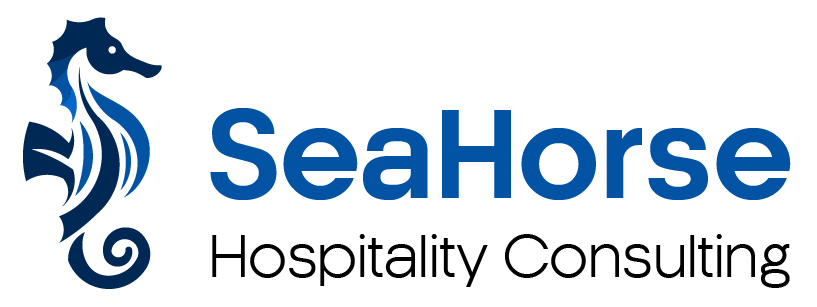Introduction to Revenue Management
Maximising Profitability with Advanced Revenue Management
Elevate your hotel's financial performance with SeaHorse Consulting's cutting-edge revenue management solutions. As one of the top hotel revenue management companies, we specialise in deploying strategic pricing, forecasting, and optimisation techniques to maximise your property's revenue potential. Our expert team, skilled in yield and revenue management in the hotel industry, ensures that every booking adds the highest value to your bottom line.
Why Invest in Professional Revenue Management
Unlock Your Hotel's Revenue Potential
Sophisticated Forecasting Models
We utilise our advanced forecasting techniques to accurately predict market demand and adjust pricing strategies dynamically, ensuring optimal revenue throughout the year.
Strategic Pricing Optimisation
Implement pricing strategies that attract guests and maximise revenue per available room (RevPAR), adapting swiftly to market changes.
Integrated Yield ManagementIntegrated Yield Management
Benefit from our comprehensive yield management strategies that align booking timing, pricing, and room availability to maximise income.
Enhanced Financial Reporting and Insights
With our detailed financial reporting, you can gain deeper insights into your revenue streams, helping you make informed decisions to drive profitability.

How SeaHorse Consulting Enhances Your Revenue Management
Comprehensive Revenue Management Services for the Hospitality Industry
SeaHorse Consulting provides a full spectrum of revenue management services to enhance your hotel's financial performance.
-
Demand Analysis and Market Segmentation
Analyse market trends and segment your customer base to tailor pricing and promotional strategies effectively. -
Revenue Management System Integration
Implement state-of-the-art revenue management systems that automate pricing adjustments and provide real-time data for better decision-making. -
Performance Benchmarking
Compare your hotel's revenue performance against competitors and industry standards to identify opportunities for improvement. -
Tactical Rate Adjustments
Make quick adjustments to your pricing based on real-time market data and emerging trends to stay competitive and profitable.
-
Channel Optimisation
Optimise distribution across all channels, including online travel agencies (OTAs), direct bookings, and corporate contracts, to enhance visibility and bookings. -
Training and Development for Revenue Teams
Provide ongoing training and development for your revenue management team to keep them updated with the latest strategies and technologies. -
Revenue Strategy Development
Develop and refine overarching revenue strategies encompassing all aspects of your hotel's operations, from room sales to ancillary services. -
Custom Reporting and Analytics
Create custom reports that track key performance indicators (KPIs) and offer actionable insights to refine your revenue strategies continuously.
Frequently Asked Questions on Hotel Revenue Management
Expert Answers to Your Revenue Management Queries
-
What is revenue management in the hotel industry, and why is it crucial?
Revenue management involves using data-driven strategies to predict consumer behaviour at the micro-market level and optimise product availability and price to maximise revenue growth. It's vital because it helps hotels adjust to market demand fluctuations, enhancing profitability through strategic pricing, inventory control, and performance analysis. Effective revenue management ensures that hotels sell the fitting room to the right client at the right time and for the right price.
-
How does a hotel revenue consultant enhance a property's financial performance?
They implement advanced analytics to understand market trends and guest booking patterns. They develop customised pricing strategies, optimise distribution channels, and improve overall revenue management practices. Consultants also train hotel teams on best practices in yield management and revenue optimisation, ensuring sustained revenue improvements.
-
What are the benefits of integrating a revenue management system in a hotel?
Integrating a revenue management system in a hotel provides benefits such as real-time data analysis, automated pricing decisions, and enhanced forecasting accuracy. These systems streamline operations, reduce staff manual workload, and improve decision-making with actionable insights. Ultimately, they help maximise occupancy and average daily rates, boosting overall revenue.
-
Can you explain the difference between yield management and revenue management in hotels?
Yield management is a subset of revenue management focused on maximising revenue by controlling inventory and pricing. It deals with selling the fitting room to the right customer at the right time for the right price. Revenue management takes a broader approach, considering costs, market segmentation, and channel optimisation. Both are crucial for enhancing profitability, but revenue management encompasses a broader scope of strategic planning.
-
What strategies are employed in forecast hotel revenue management?
Forecast hotel revenue management employs techniques such as dynamic pricing, where room rates are adjusted in real-time based on demand, competition, and other external factors. It also uses historical data and market analysis to predict future trends, helping managers make informed pricing and inventory allocation decisions. These forecasts are critical for planning promotions, staffing, and other operational aspects to align with expected demand.
-
How do top hotel revenue management companies optimise revenue for their clients?
Top hotel revenue management companies maximise revenue by leveraging sophisticated data analytics tools to analyse market conditions and predict customer behaviours. They customise pricing strategies, optimise online presence across digital booking platforms, and employ targeted marketing strategies to attract the right segments at the right time. They also focus on increasing direct bookings to reduce dependency on third-party channels, which often take significant commissions.
-
What role does revenue management play in hotel operating companies?
In hotel operating companies, revenue management is central to strategic planning and daily operations. It informs decisions on room pricing, special offers, and inventory management, which are crucial for achieving financial targets. Revenue managers work closely with other departments, such as sales, marketing, and operations, to ensure that revenue goals are integrated across all facets of the hotel's strategy.
-
What are effective revenue optimisation strategies in hotels?
Effective revenue optimisation strategies in hotels include segmenting customers to offer personalised pricing, using upselling and cross-selling techniques to increase guest spending, and optimising the mix of direct and indirect sales channels. These strategies also involve continuously monitoring and adjusting prices based on competitive analysis and market demand to ensure the hotel remains attractive and profitable.
-
What is involved in the revenue management cycle in hotels?
The revenue management cycle in hotels involves several continuous and iterative steps: data collection, analysis, strategy formulation, implementation, and evaluation. This cycle ensures that strategies are based on current data and adjusted according to their performance and changing market conditions. It's a dynamic process that requires constant attention and adjustment to optimise revenue.
-
How do hotel revenue management services differ from those for other properties?
Revenue management services for hotels are specifically tailored to address the unique dynamics of the hospitality industry, such as the perishability of hotel rooms, varying customer booking patterns, and the significant impact of seasonal trends. These services focus more on optimising night-by-night room rates and managing bookings across various channels, contrasting with revenue management for other properties, focusing more on long-term leases or event-based revenues.
